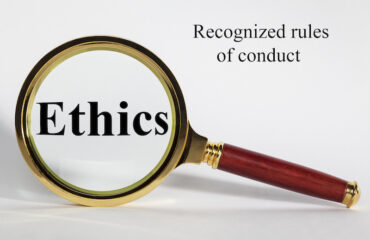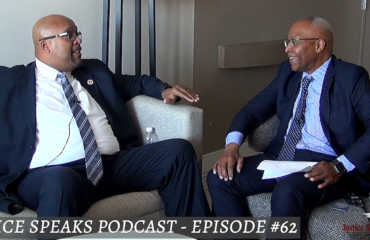Judicial Education: Working to Become Better Judges
An Interview with Joy Lyngar, Provost of the National Judicial College
In this episode, Justice Speaks begins a new direction. We will be interviewing leaders in the justice field about what they think about the current state of justice and what can be done to improve it.
We begin this new direction by interviewing Joy Lyngar, of the National Judicial College (NJC) about her position of Provost and her upcoming presidency of the National Association of State Judicial Educators (NASJE).
 During this episode, JSI focuses on Ms. Lyngar’s views about the importance of judicial education and what can be done to improve it. She discusses the NJC and the important role it plays in educating judges world wide. She also recognizes the College’s interaction with Ukrainian Judges and how the invasion of Ukraine can be seen as an attack on the rule of law. She explains that this is not only a threat to the rule of law but also that justice educators have a role in resisting these threats and helping judges understand their role in preserving democracy.
During this episode, JSI focuses on Ms. Lyngar’s views about the importance of judicial education and what can be done to improve it. She discusses the NJC and the important role it plays in educating judges world wide. She also recognizes the College’s interaction with Ukrainian Judges and how the invasion of Ukraine can be seen as an attack on the rule of law. She explains that this is not only a threat to the rule of law but also that justice educators have a role in resisting these threats and helping judges understand their role in preserving democracy.
 Ms. Lyngar then talks about her role as the incoming President of NASJE, including what the association does, the challenges it faces, and where she hopes to take it during her presidency. She contests the public assumption that judges come to the bench knowing how to judge and stresses the importance of continuous judicial education.
Ms. Lyngar then talks about her role as the incoming President of NASJE, including what the association does, the challenges it faces, and where she hopes to take it during her presidency. She contests the public assumption that judges come to the bench knowing how to judge and stresses the importance of continuous judicial education.
During the interview, Ms. Lyngar discusses her Canadian roots. She recounts her personal journey starting with being raised in eastern Ontario to going to law school at the University of Saskatchewan in Saskatoon and from there on to Moosejaw, Saskatchewan. Her journey, thus far, ends in Reno, Nevada at the NJC.
Over the course of the interview, we touch on the Science Bench Book for Judges and how it helps judges to “Get it right” so that junk science is not allowed into as evidence.
Finally, Ms. Lyngar talks about the challenges of educating judges. She argues that in the course of educating judges, they should to be challenged to “risk something.” She argues good educational session should take judges out of their comfort zone in order to help them become better at their jobs.
Get more articles like this
in your inbox
Subscribe to our mailing list and get the latest information and updates to your email inbox.
Thank you for subscribing.
Something went wrong.







